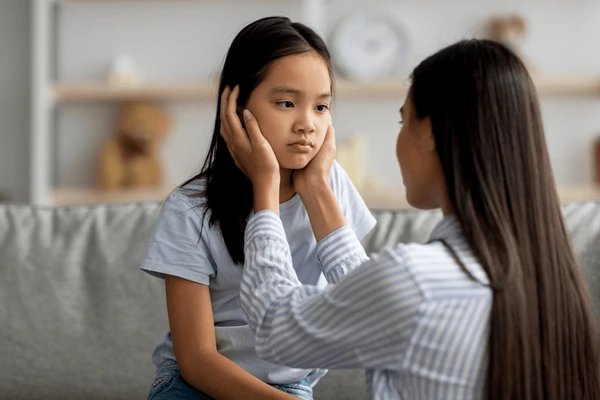Being the youngest in the family is kind of like playing life on “easy mode”… until it’s not.
Yeah, maybe your bedtime was later, you got out of chores more often, or your parents weren’t as strict by the time you came along. But under all that freedom, there’s a weird tension: you’re expected to thrive—sometimes even outshine your older siblings—and carry the family’s hopes like a shiny new trophy.
 As someone who was not just the youngest, but also the only boy in my extended family, I’ve lived this reality in full color. Let’s unpack the highs, the pressures, and the cultural threads that make being the youngest child both a blessing and a puzzle to solve.
As someone who was not just the youngest, but also the only boy in my extended family, I’ve lived this reality in full color. Let’s unpack the highs, the pressures, and the cultural threads that make being the youngest child both a blessing and a puzzle to solve.
The Traits of Being the “Baby”
There’s some truth to the stereotypes. Youngest kids are often thought of as playful, rebellious, or a little spoiled. But there’s more going on beneath the surface.
Psychologists have noticed patterns that pop up again and again in youngest children:
We’re risk-takers. Whether it’s starting a business, quitting a job to travel, or trying something out of the box, youngest children are known for leaping before they look. Maybe it’s because the safety net is thicker—we’ve seen our siblings fall and bounce back.
We’re social animals. Growing up as the baby means learning fast—especially how to charm, deflect, or win people over. I don’t think I’d have half the communication skills I do if I hadn’t spent my childhood trying to get a word in during family dinners with five loud aunties.
We’re resilient. Watching older siblings fail teaches you that life moves on. One time, my sister bombed a piano recital so hard she cried through dinner. I remembered that moment years later when I froze during a school speech. Instead of panicking, I joked through it. I’d seen failure already—I knew I’d survive.
We’re also seen as… spoiled. And look, I won’t lie. My mom definitely cooked my favorite dishes more than my siblings’. But that doesn’t mean the emotional load was light. Sometimes, being “babied” comes with the pressure of proving you’re more than just the fun one.
The Invisible Weight of Being the Youngest
There’s this paradox: your parents are more relaxed with you, but their expectations might actually be higher.
In my case, my parents poured all their remaining hopes into me. My sisters had taken different paths—some academic, some not—and I was the “final shot.” They weren’t as strict with curfews or grades, but the disappointment when I underperformed? That hit hard.
I remember once getting a B+ in AP Biology and my dad didn’t say a word. Not out of anger—but because he was visibly disappointed. That silence weighed more than any punishment. I didn’t just want to do well—I felt like I had to.
And that kind of pressure can mess with your sense of self. Are you pursuing your goals… or chasing validation? Are you making your own choices… or trying to make the family proud?
In Asian Families, Being the Youngest Comes With Cultural Layers
In traditional Asian culture, family isn’t just important—it’s everything. The word 家 (jiā) doesn’t just mean “home.” It means legacy. Honor. Collective identity.

There’s also 孝 (xiào), or filial piety. It’s the idea that your actions reflect on your parents—and by extension, the whole family. As the youngest, this meant that I had a kind of cultural freedom. My parents were too tired to micromanage—but they still expected me to be the one who “made it.”
I used to joke that I had a halo and a leash. I could stay out late, but I better come back with straight A’s and a scholarship.
I still remember when I told my mom I wanted to major in something non-STEM. She didn’t yell. She just looked at me, quietly, and said: “But we need someone in the family to carry the torch.”
Even when they gave me space to grow, there was this constant hum: Don’t let us down.
The Golden Child Complex
In a lot of families, especially immigrant ones, there’s a “golden child.” For me, that title felt both flattering and suffocating.
Yes, I got praised a lot. My cousins’ parents would say things like “Why can’t you be more like Eric?” and I’d smile, trying not to let on how stressed I was inside.
But the flip side? Every mistake felt bigger. Every misstep felt like I was tarnishing some image they had of me. It was like I was on stage, always performing—always aware of the spotlight.
And sometimes, I wanted off that stage.
Finding Balance: Advice for Youngest Kids (and Their Parents)
So how do you thrive in this role without burning out or losing yourself?
Here’s what’s helped me—and might help you too:
1. Youngest Kids: Own Your Path
You don’t have to live in your siblings’ shadows. Do your own thing, even if it’s weird. In high school, I got super into Japanese calligraphy. No one else in my family cared about it. But it was mine. That gave me confidence that wasn’t tied to comparison.
2. Parents: Celebrate Curiosity, Not Just Achievement
If your youngest wants to learn pottery instead of pre-calc, let them! Some of my best traits—creativity, empathy, leadership—came from “off-track” interests. You never know where a child’s passion will take them.
3. Talk About the Pressure
Don’t pretend it’s not there. A quick, “Hey, I know we’ve put a lot on your plate, and we love you no matter what” can go a long way. I still remember the first time my mom said she was proud of me for trying, not just succeeding. That moment changed how I saw myself.
4. Highlight Effort Over Outcome
Your kid got a C but studied harder than ever? Celebrate that. Praise the process. The more you reward growth over perfection, the more resilient your youngest will become.
Final Thoughts: Embrace the Chaos
Being the youngest is like being the final act of a long-running play. The audience (your parents) has seen it all, and now they’re waiting for the grand finale.

It’s easy to feel like you have to wow them. But sometimes, the most memorable performance isn’t the loudest or the flashiest—it’s the one that’s honest, creative, and true to the performer.
So, if you’re the youngest, don’t be afraid to mess up, stand out, or take a different path. And if you’re raising the youngest, remember: they’re not just the “baby.” They’re someone trying to grow up in the shadow of everyone else, looking for their own light.
Let them find it.
Let them shine.








